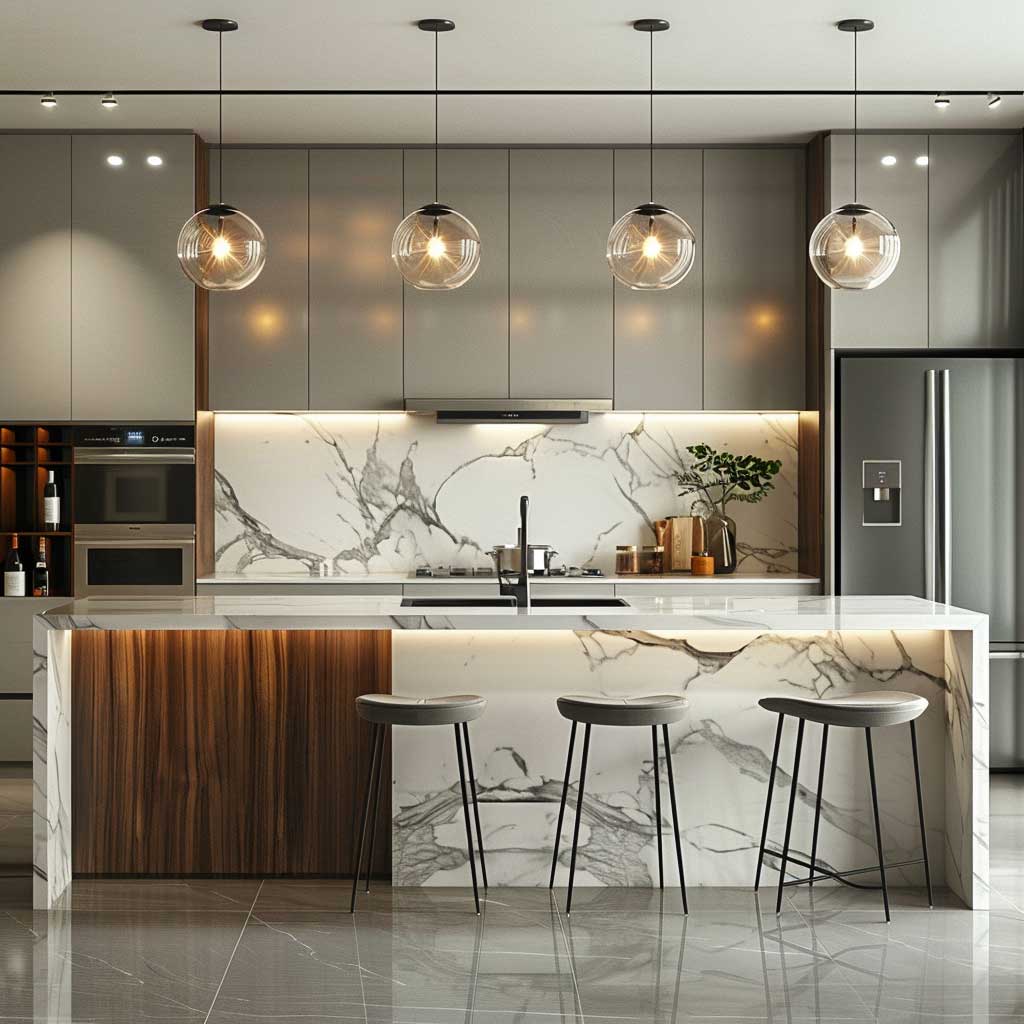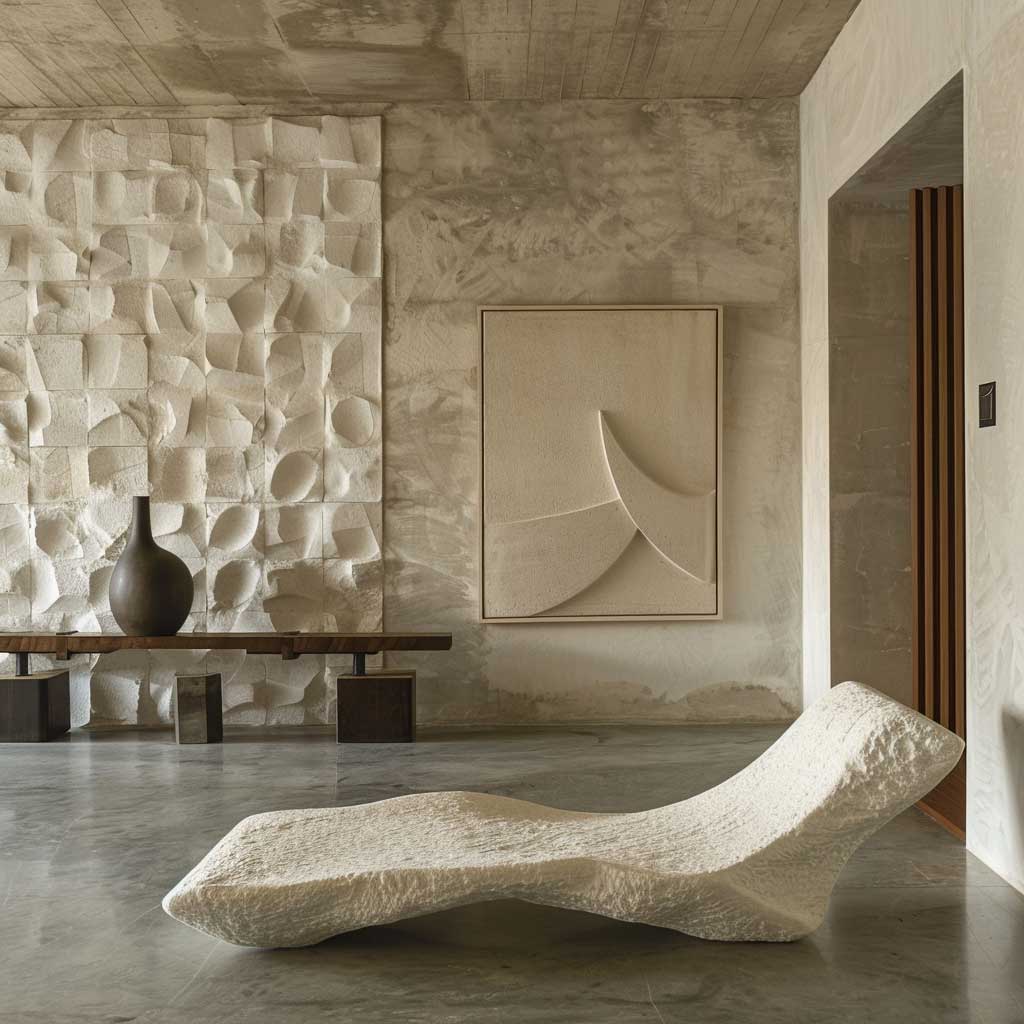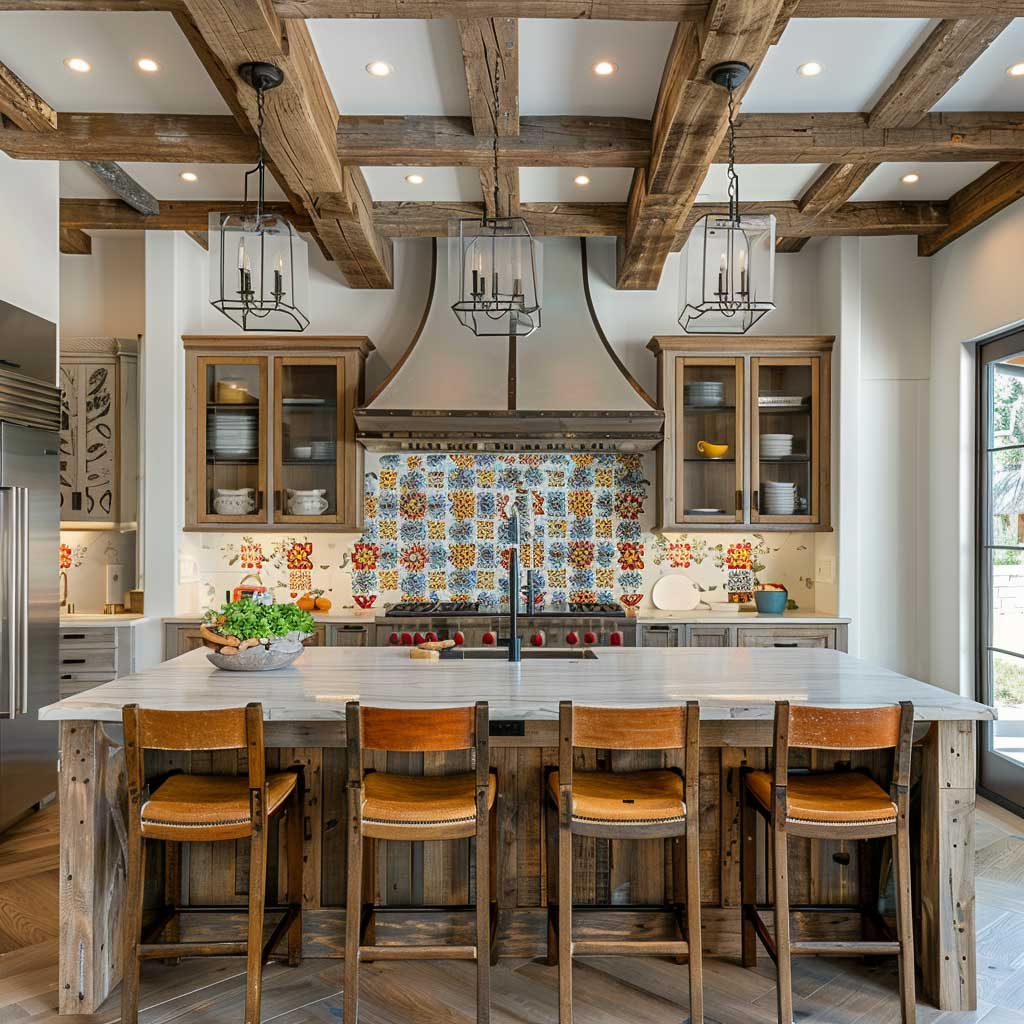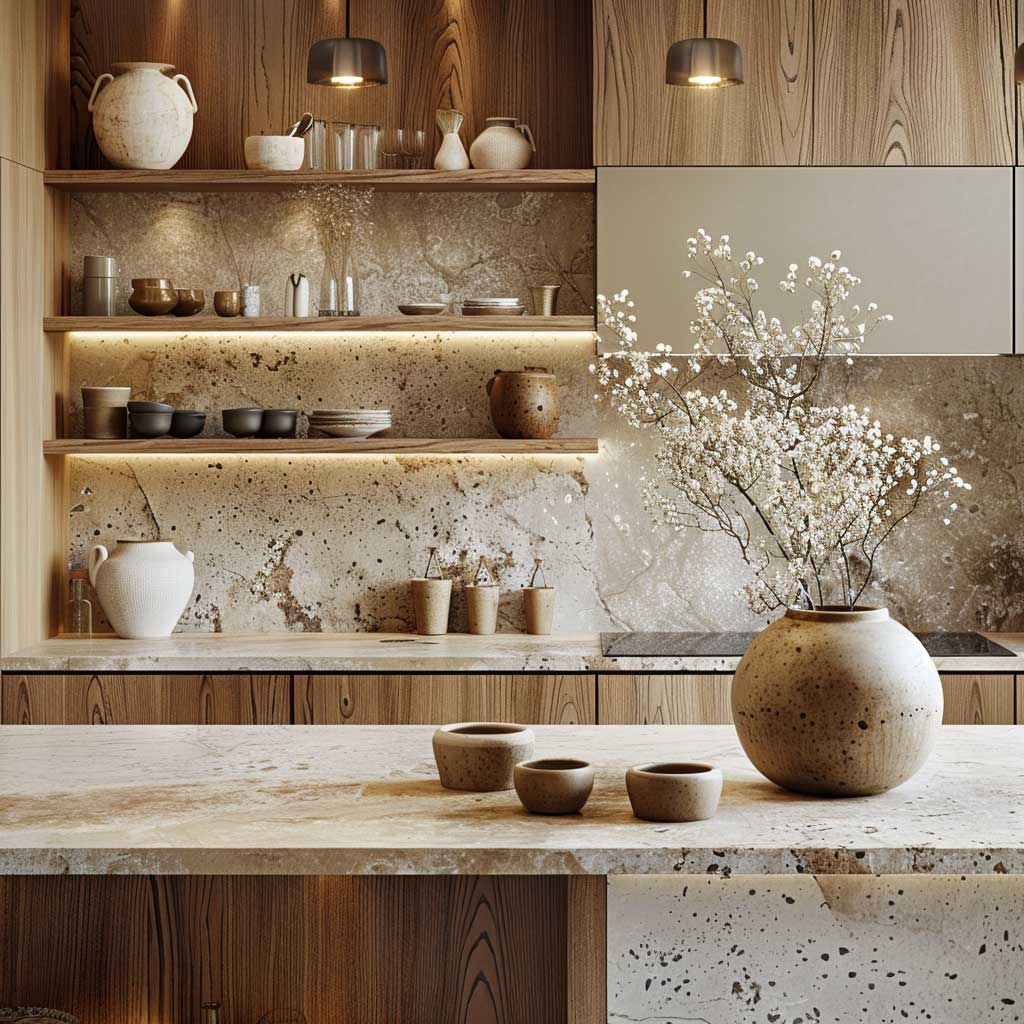When envisioning a space that embodies tranquility, functionality, and aesthetic simplicity, the sleek Japanese minimalist approach to kitchen design effortlessly rises to the forefront. This design philosophy, deeply rooted in the concept of Zen, emphasizes the beauty of clean lines, natural materials, and a palette that promotes serenity and harmony. In the world of culinary spaces, where efficiency and calm are paramount, adopting this minimalist approach not only enhances the visual appeal of the kitchen but also improves its functionality. Let’s explore some of the most striking kitchen designs that perfectly capture the essence of Japanese minimalism, offering inspiration for those looking to transform their kitchens into havens of peace and simplicity.
Streamlined Elegance in Modern Japanese Kitchen Design
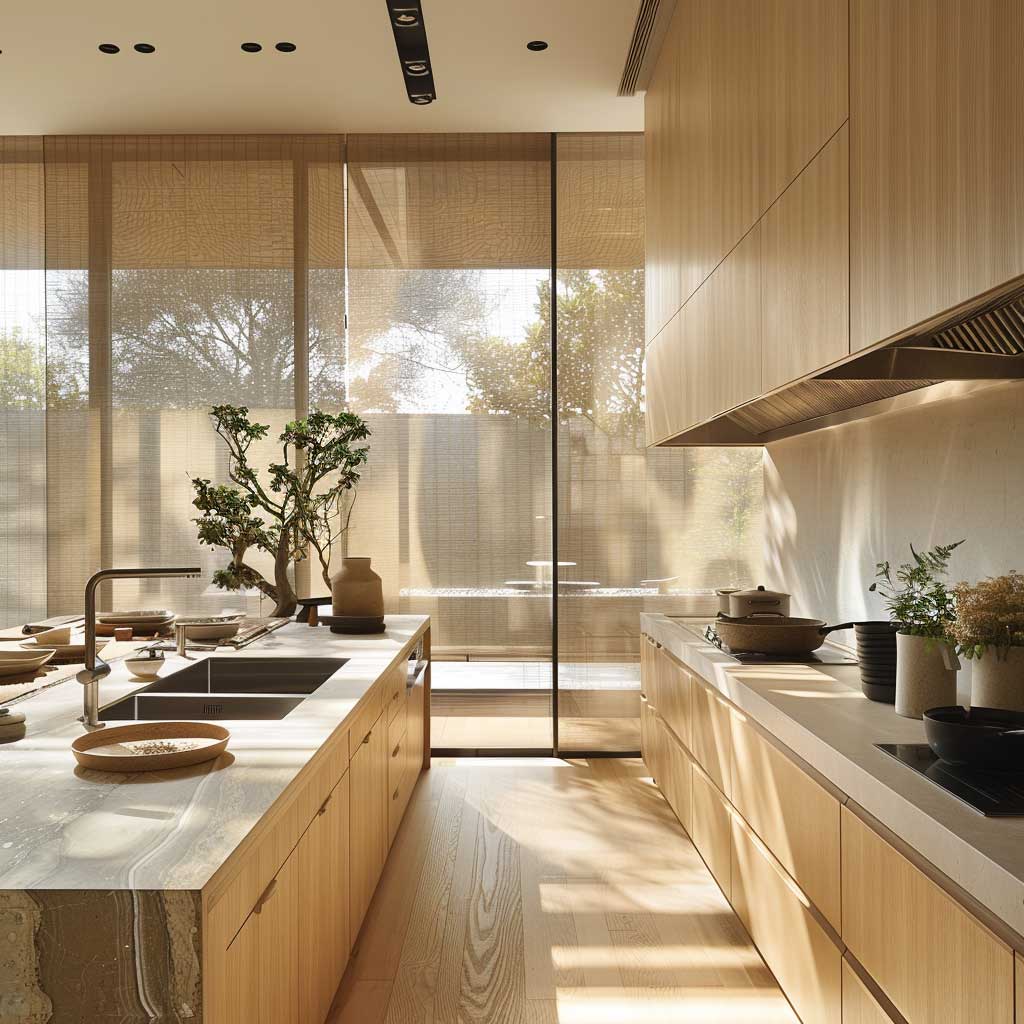

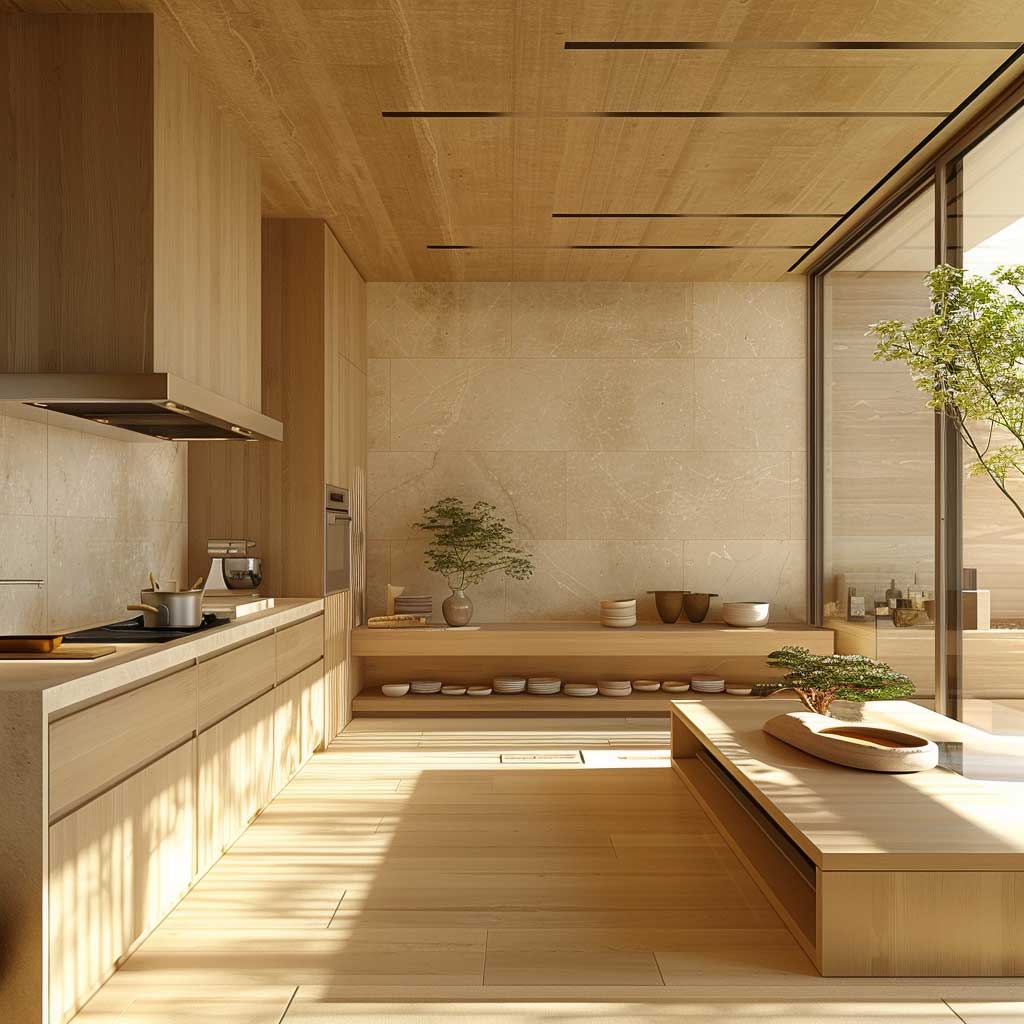

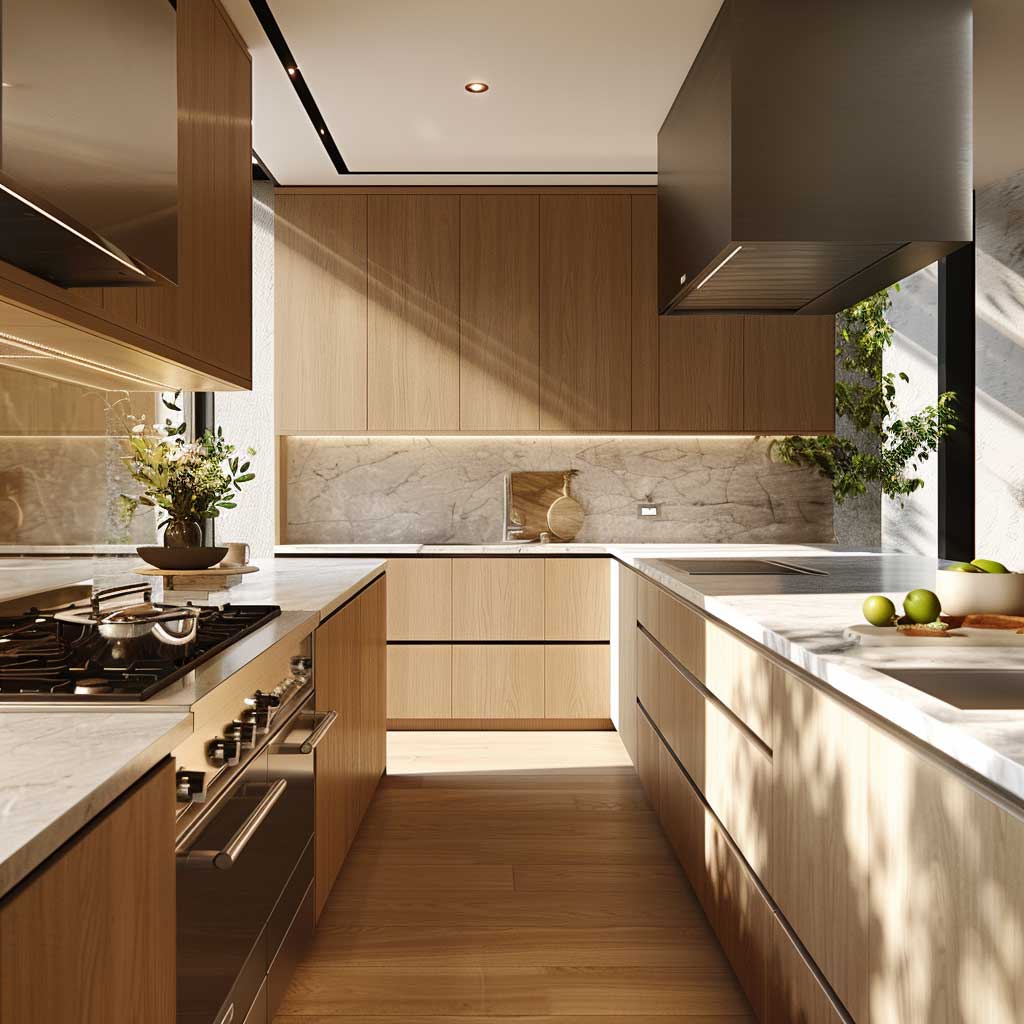
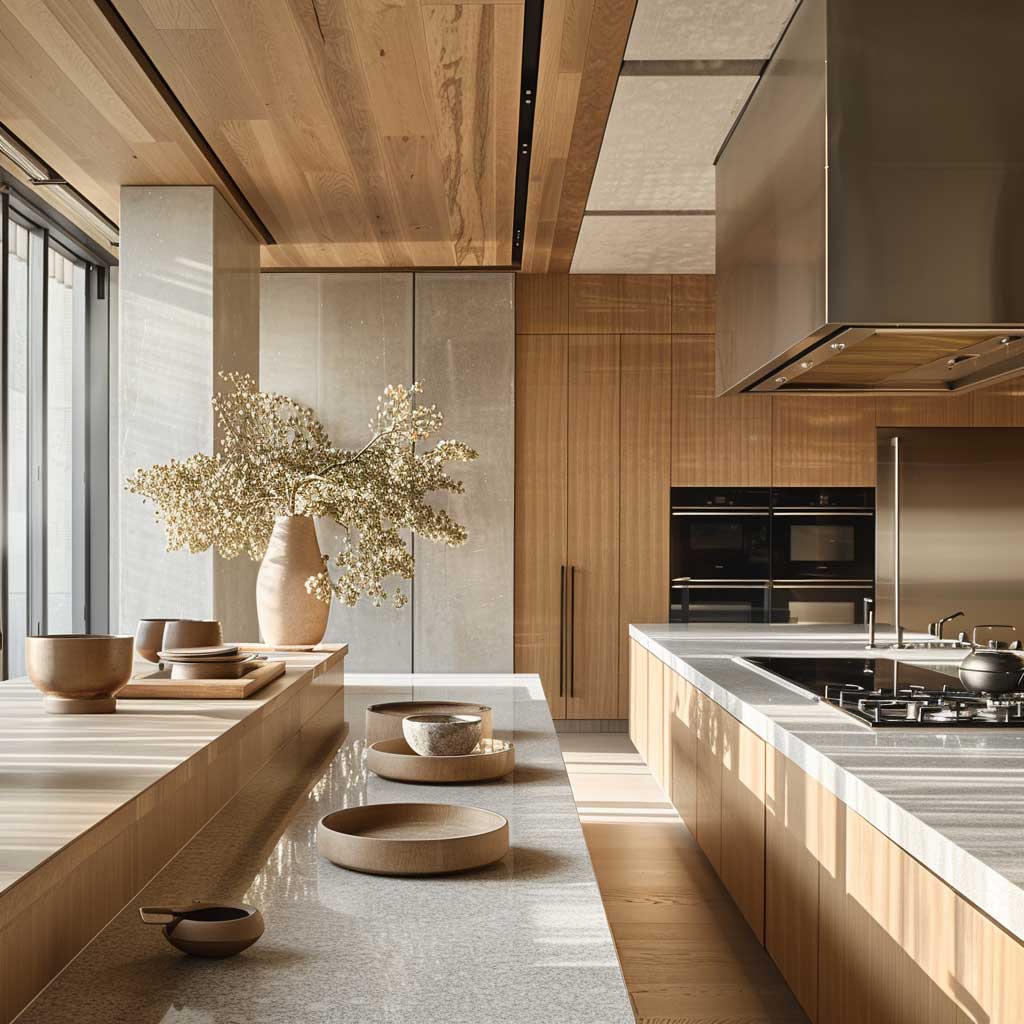
In the realm of best kitchen designs, the allure of modern Japanese kitchen design stands unmatched, embodying an aesthetic that champions streamlined elegance and minimalist beauty. This design philosophy merges the sleek functionality of contemporary elements with the serene, understated principles of Japanese minimalism. The result is a culinary space that not only caters to the practical demands of cooking and dining but also serves as a tranquil retreat within the home.
The foundation of this design lies in its clean, uncluttered layout, where every object and appliance has its place, concealed within light wood cabinetry that whispers of nature’s calm. Stainless steel appliances, with their lustrous finish, offer a modern contrast, yet they are integrated so seamlessly that they do not disrupt the tranquil ambiance. Instead, they enhance the kitchen’s functionality while maintaining the aesthetic of serene simplicity.
White countertops, pristine and unblemished, stretch across the kitchen, reflecting the natural light that streams in through expansive, frameless windows. This interplay of light and space is a key element, creating an environment that feels both open and intimate. A backsplash of natural stone adds texture and an echo of the natural world outside, grounding the space in the tactile beauty of the earth.
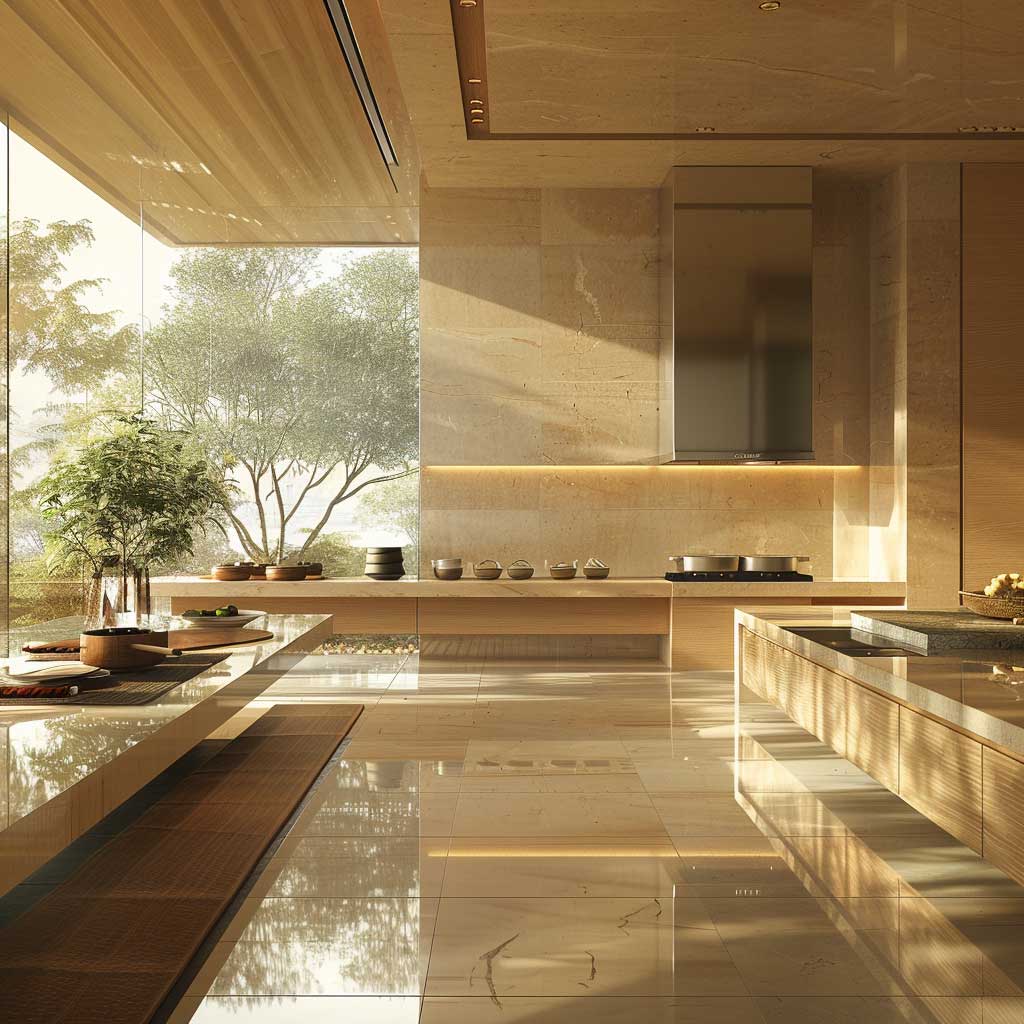
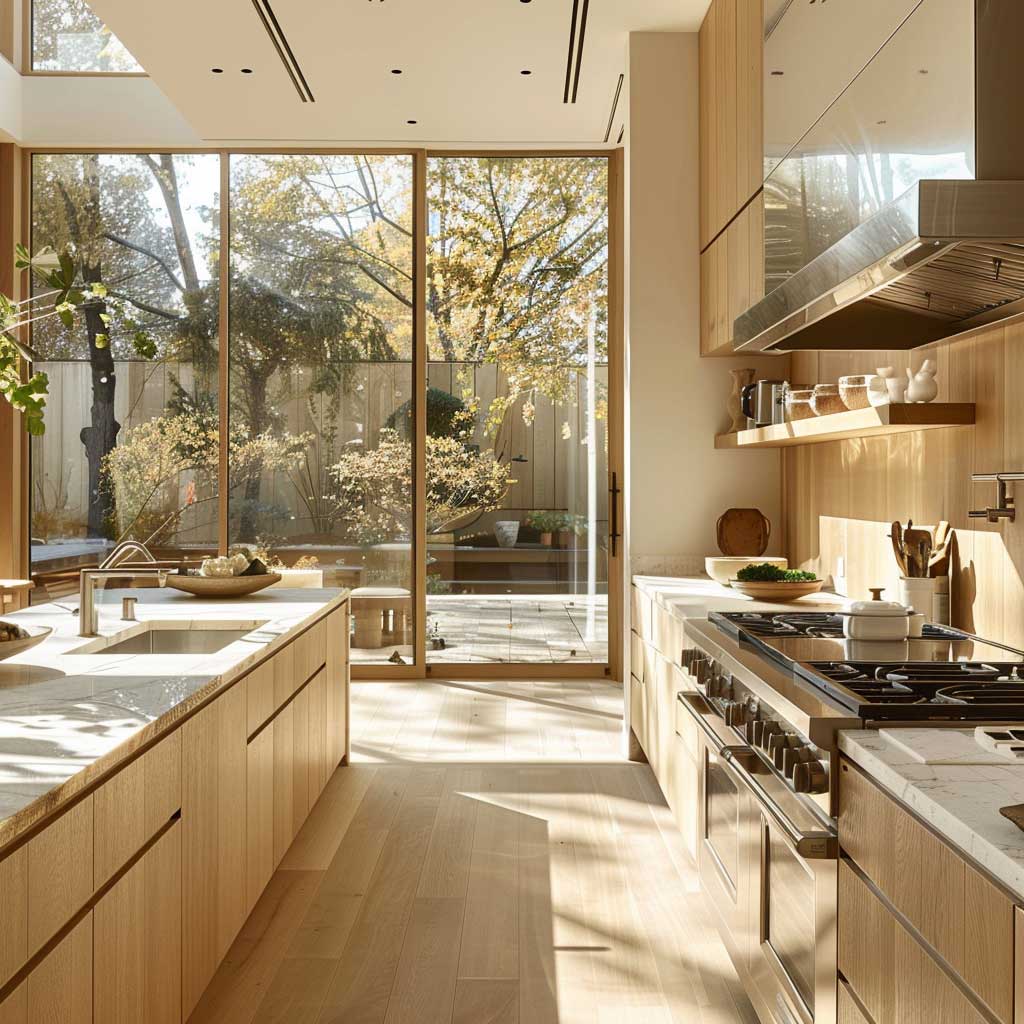
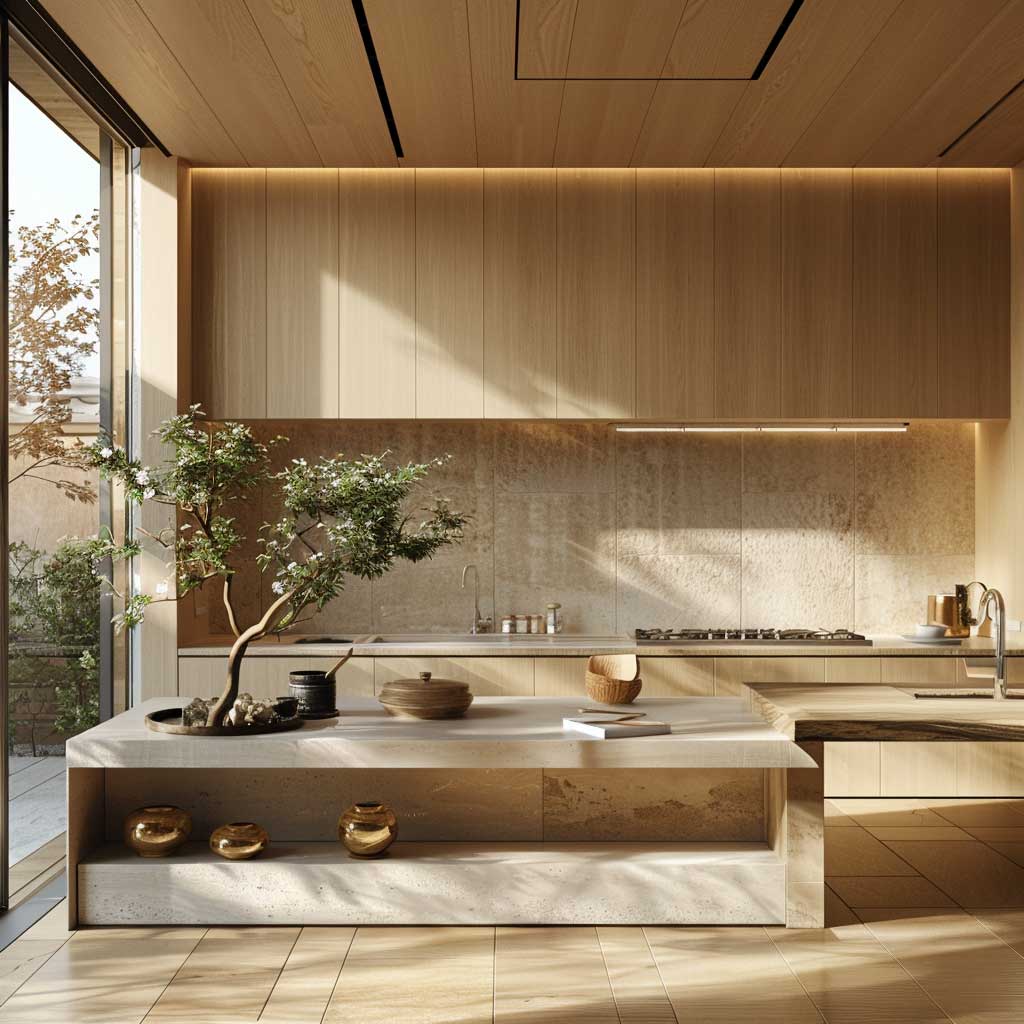
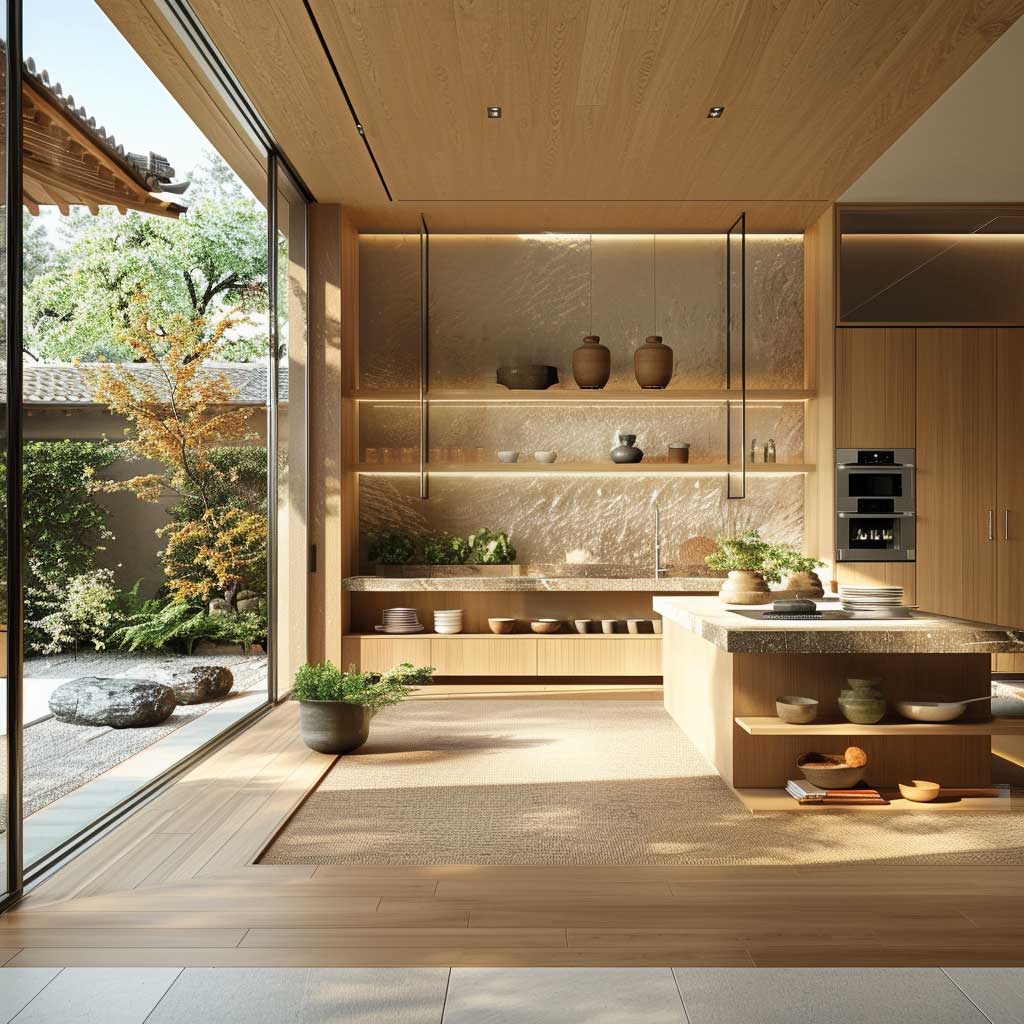
Accents of greenery, strategically placed, serve as vibrant reminders of life and growth, adding a dynamic contrast to the neutral palette. These touches of green not only bring the outside in but also contribute to the overall sense of harmony and balance that defines the space.
In crafting kitchens that exemplify the best in modern Japanese design, the focus is always on creating a space that balances form with function, beauty with utility. The streamlined elegance of these kitchens is not just in their appearance but in their very essence, offering a place of peace and simplicity in the midst of daily life.
Natural Light and Neutral Tones: A Minimalist Kitchen Masterpiece
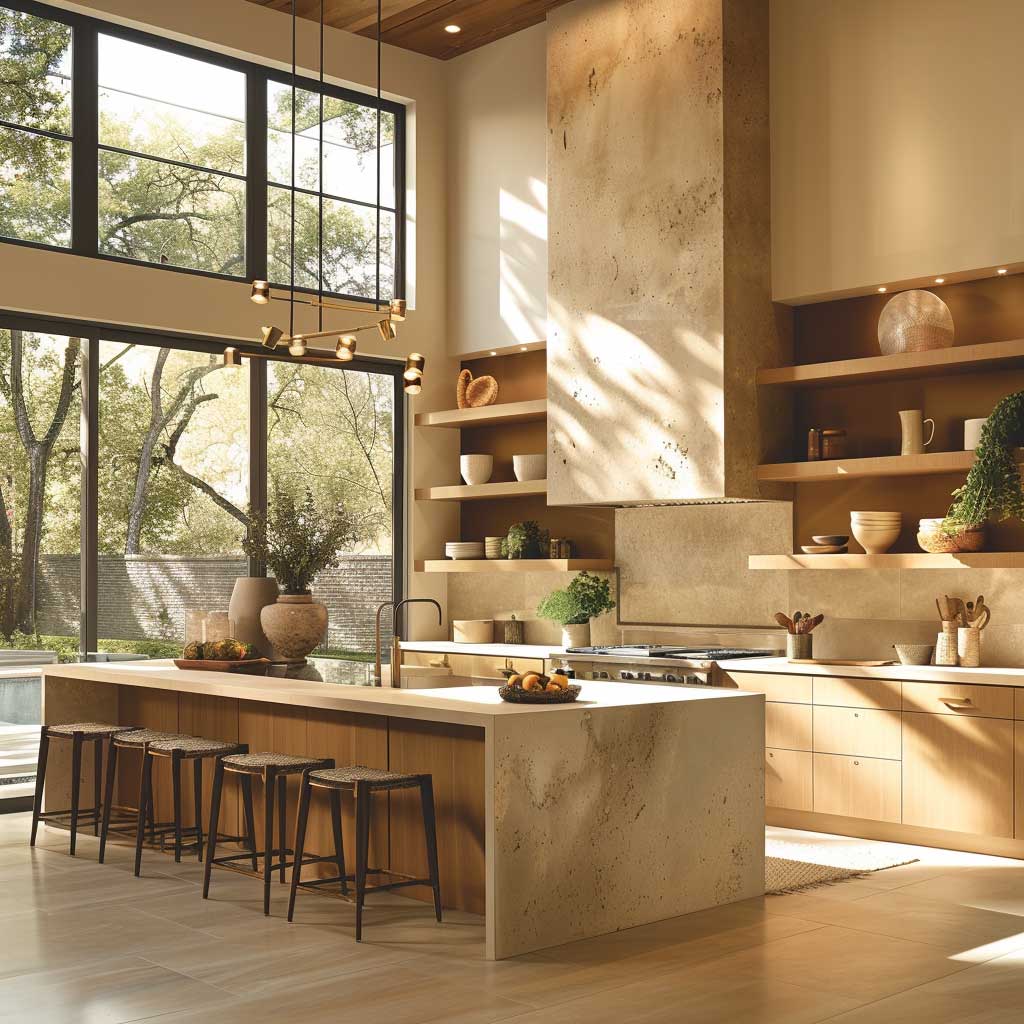
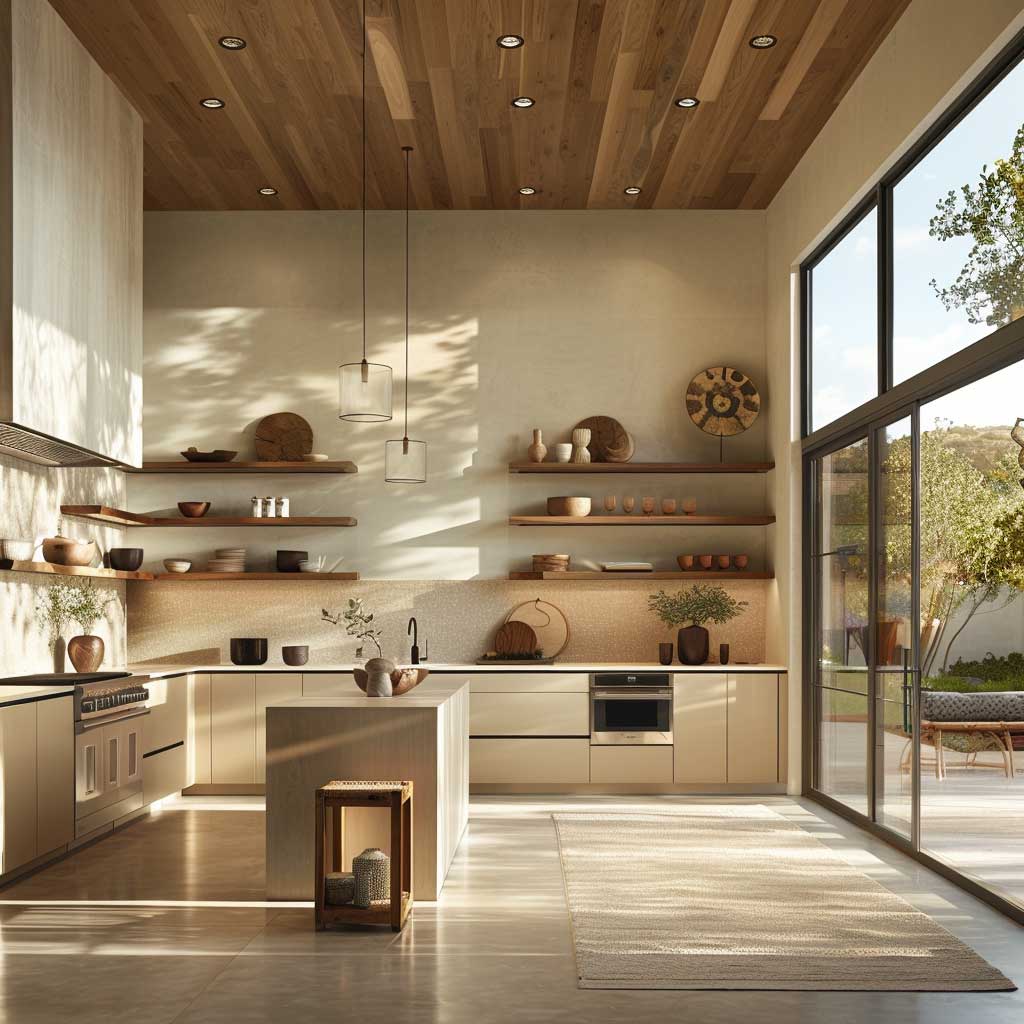
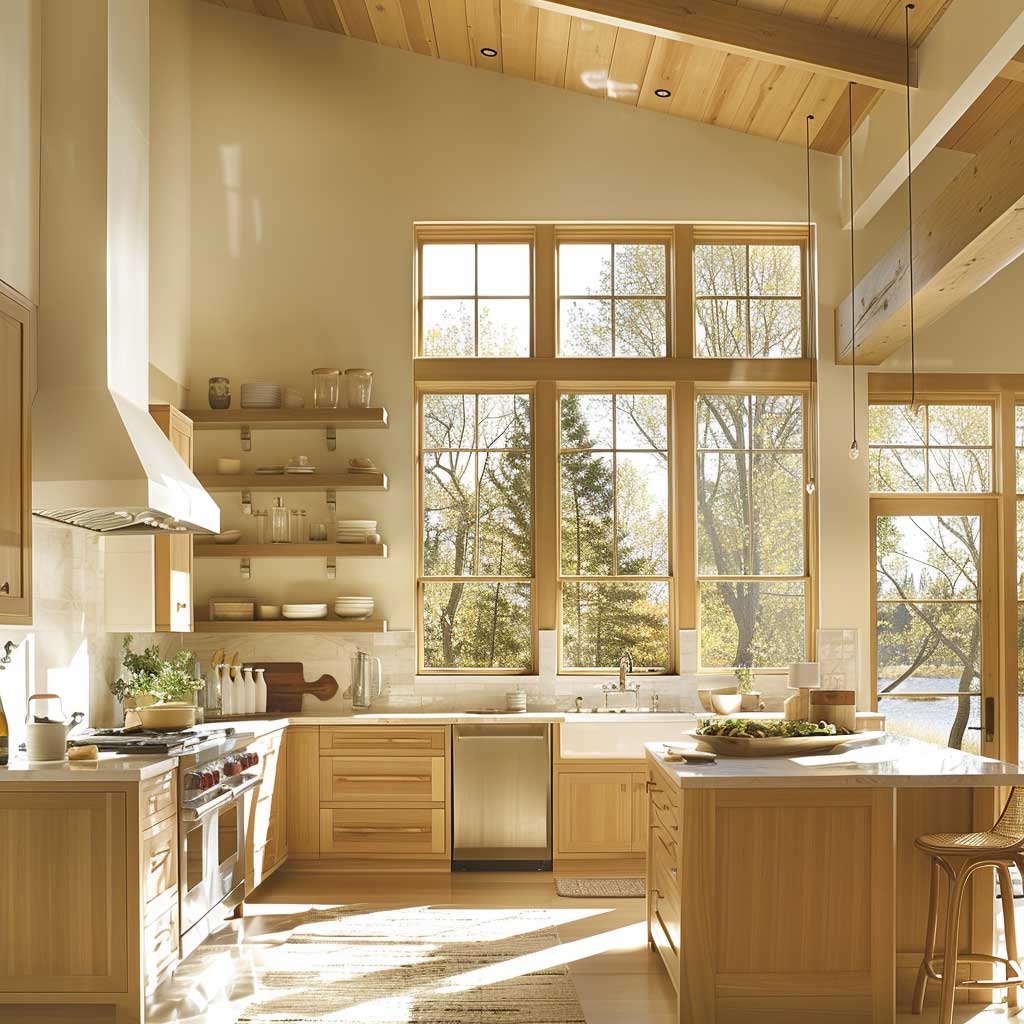
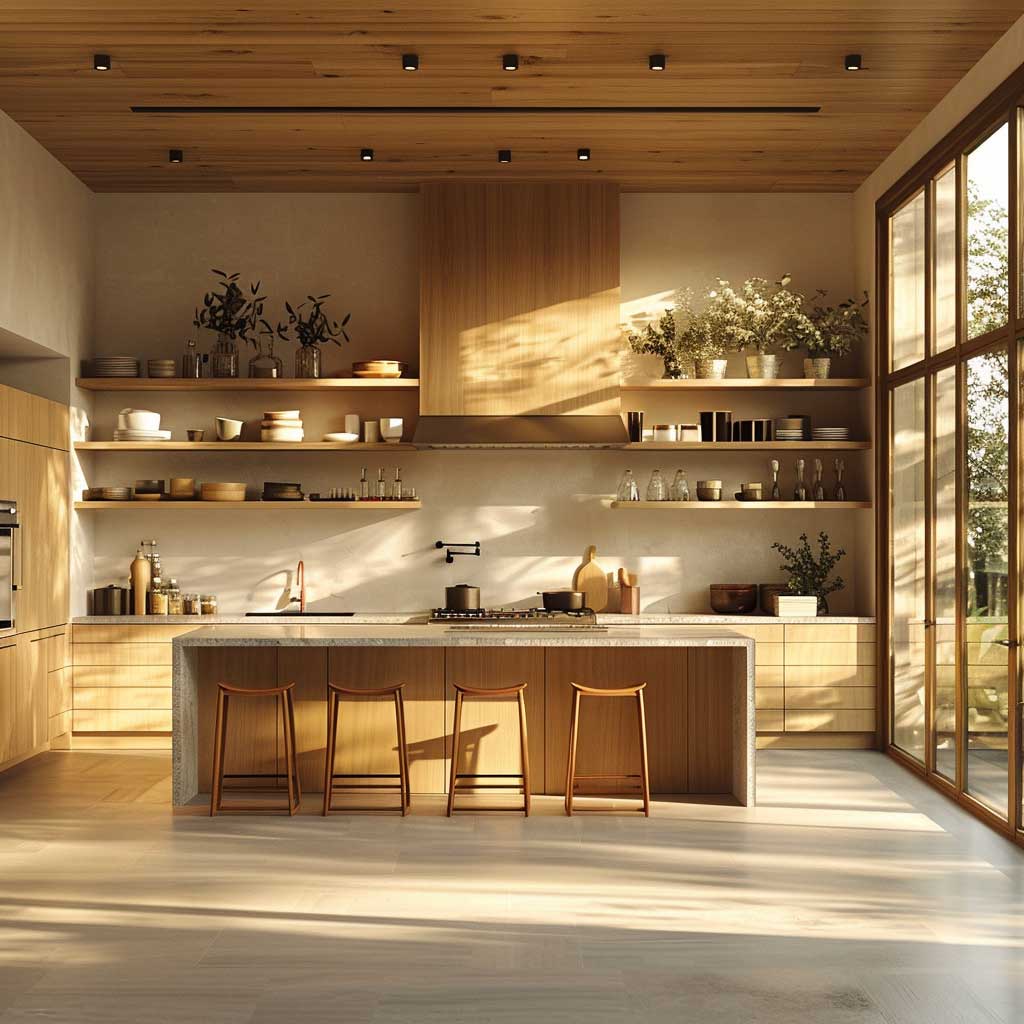
The best kitchen designs are those that transcend mere aesthetics to evoke a feeling, to create an ambiance. Among these, kitchens that leverage natural light and neutral tones stand out, offering spaces that are not just functional but are masterpieces of minimalist design. In such kitchens, every element is chosen with care and intention, contributing to an atmosphere of calm and clarity.
The hallmark of these kitchens is the abundance of natural light, which floods the space through large, floor-to-ceiling windows. This light enhances the soft, neutral hues of the walls and cabinetry, creating an environment that feels both expansive and welcoming. The use of light, natural woods for shelves and cabinets adds warmth, while the polished concrete countertops introduce a modern, tactile element.
Central to the design is the concept of openness. High ceilings and wide-open spaces encourage airflow and movement, making the kitchen feel like a natural extension of the living area. This openness is not just physical but visual as well; the minimalist approach to furnishings and decor ensures that nothing obstructs the flow of light and space.
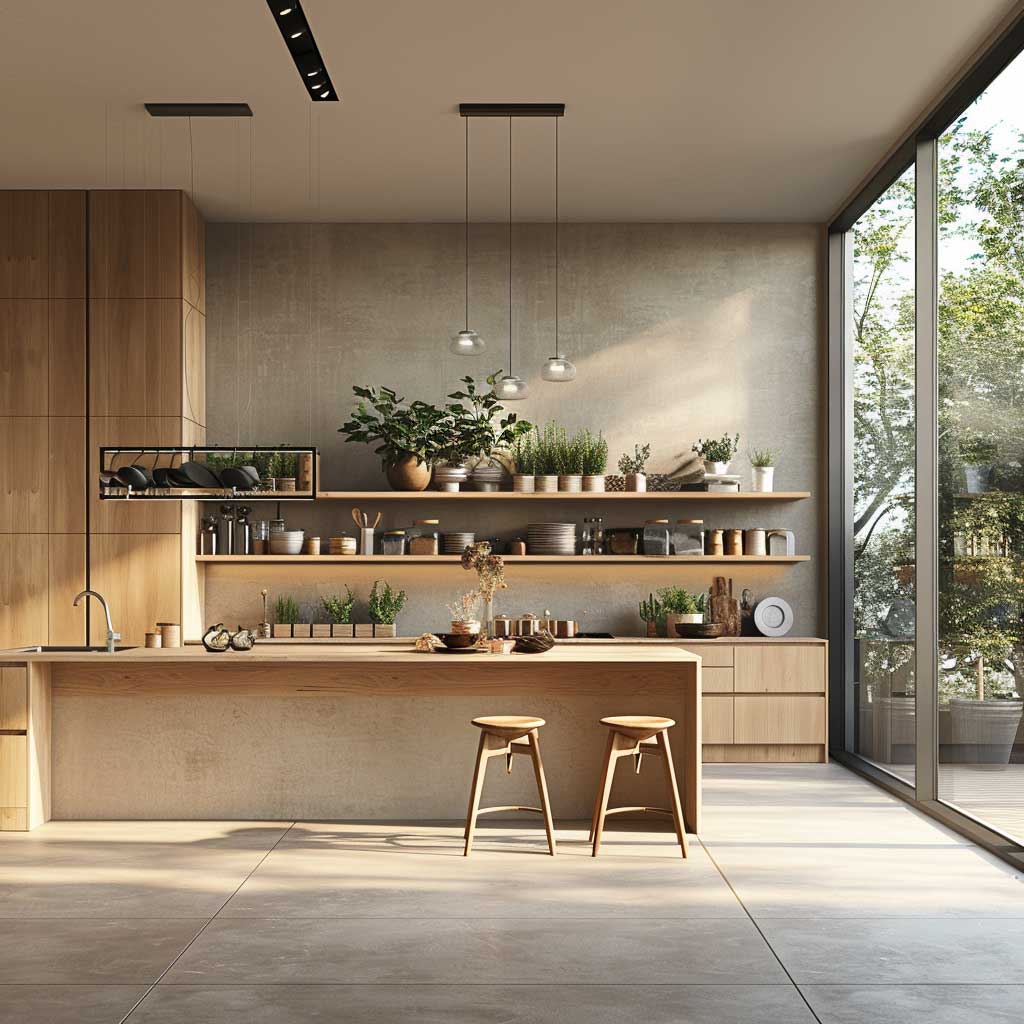
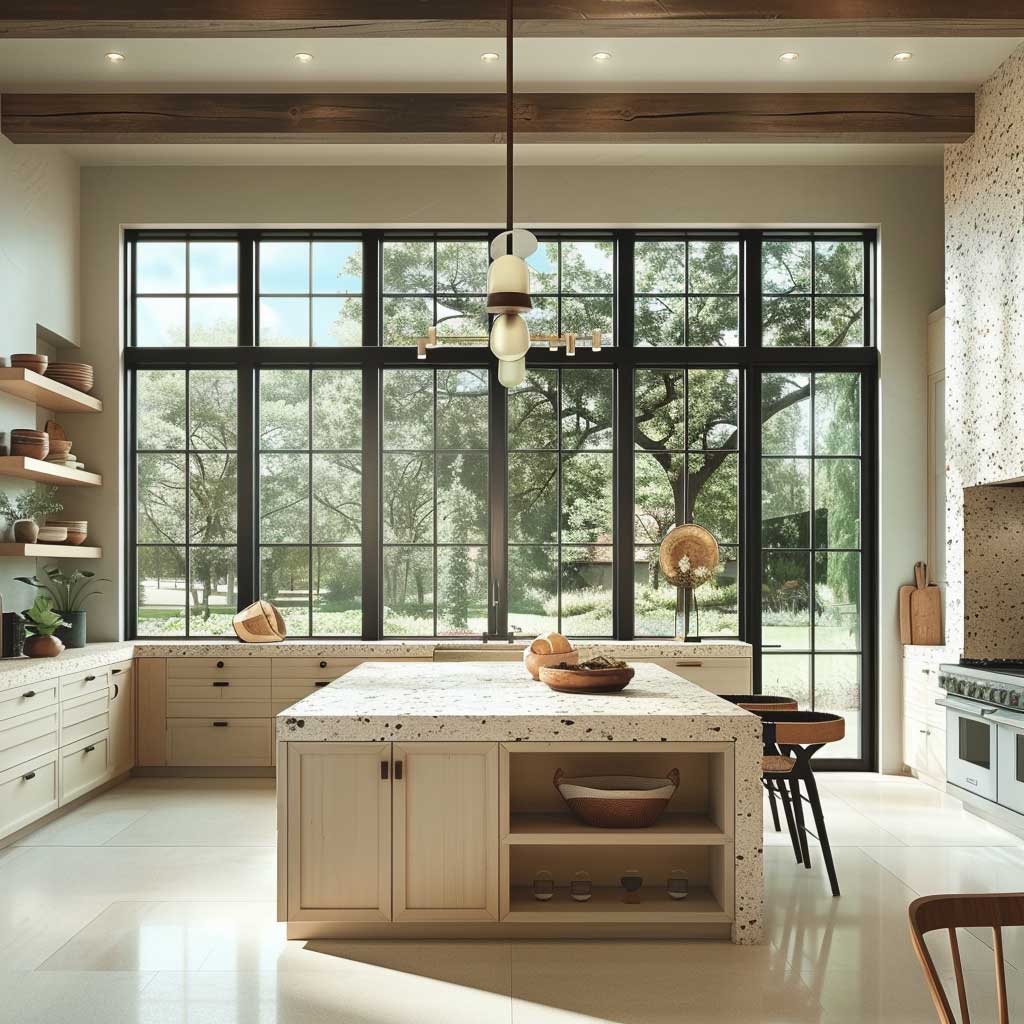
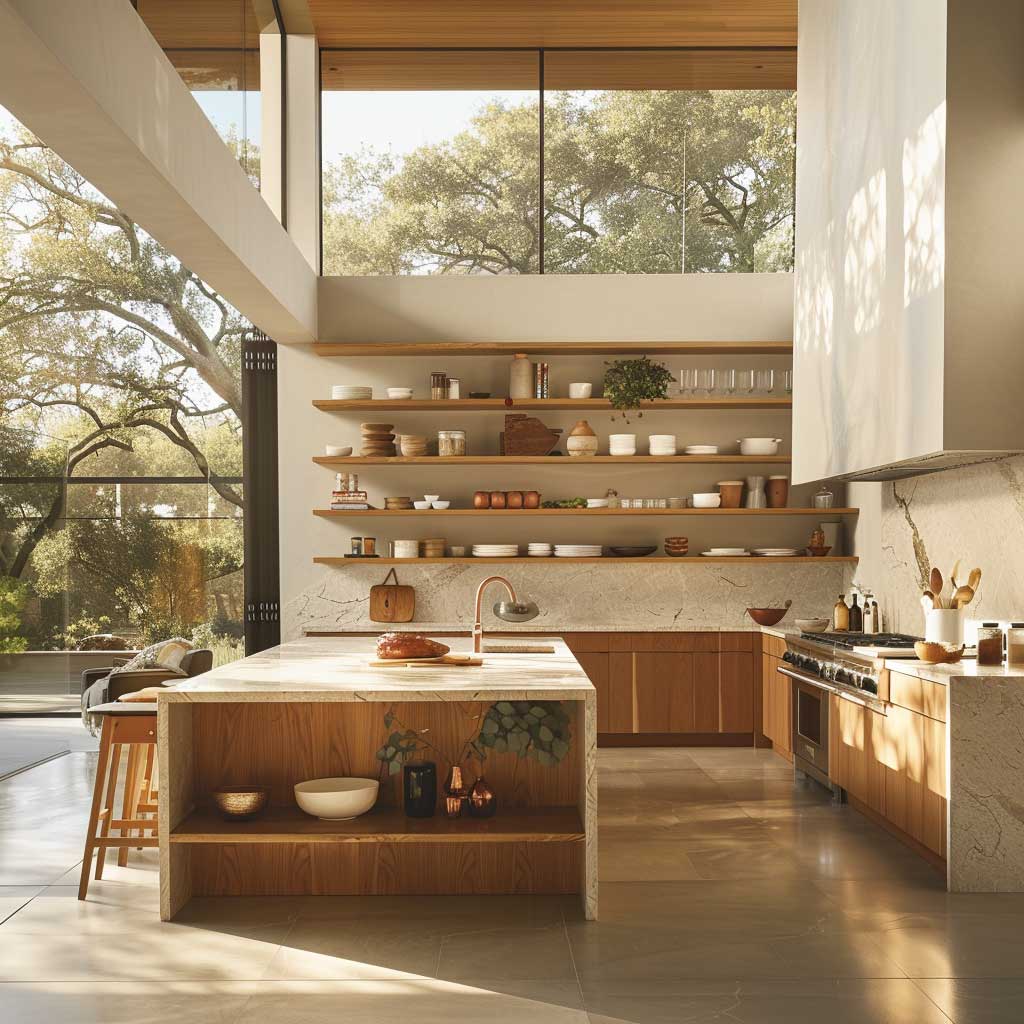
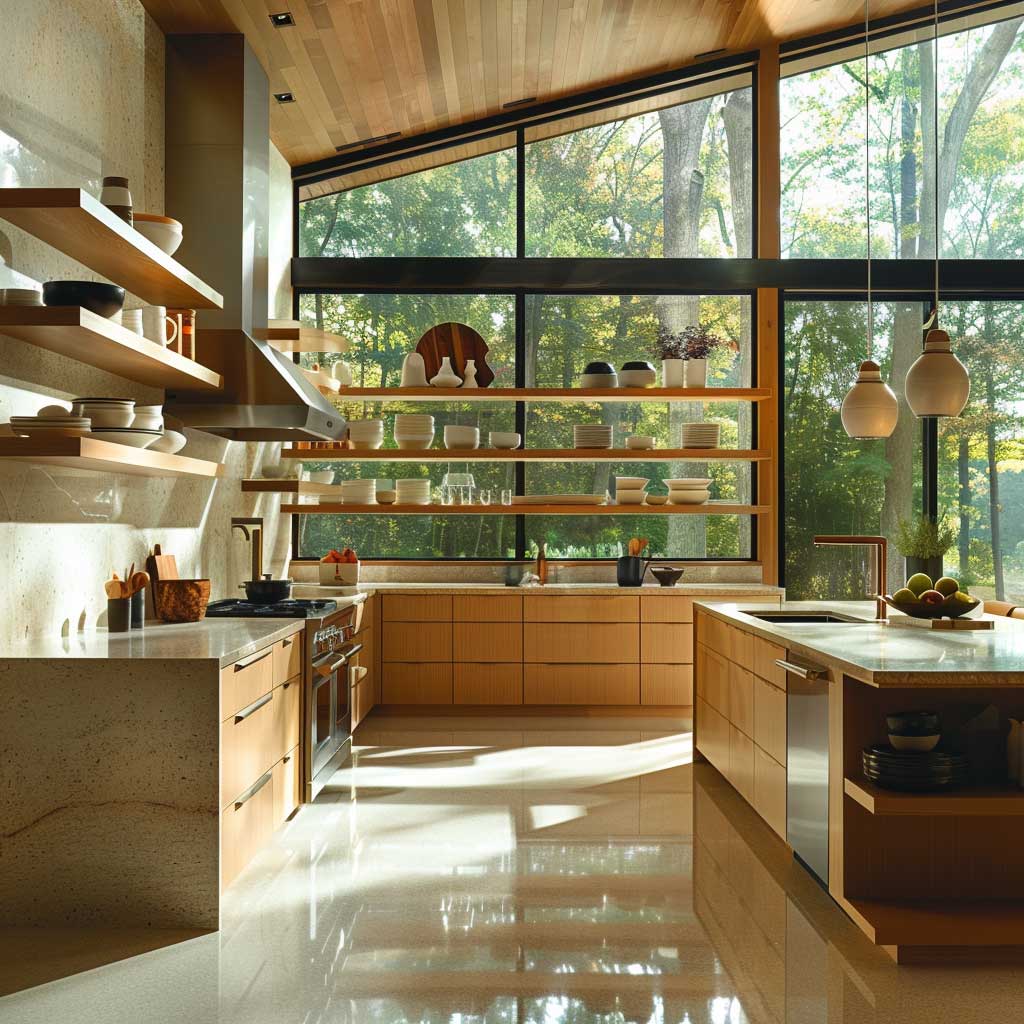
Yet, this minimalism does not equate to sterility. On the contrary, the strategic use of modern lighting fixtures and cozy, minimalist furnishings infuses the space with warmth and personality. The kitchen becomes a place where functionality meets beauty, where the simple act of cooking or dining is elevated into a serene experience.
In creating a minimalist kitchen masterpiece, the emphasis on natural light and neutral tones is a testament to the power of simplicity. These kitchens remind us that in the absence of clutter, both physical and visual, there is room for tranquility and joy.
Harmonious Blend of Tradition and Contemporary Minimalism in Kitchen Spaces
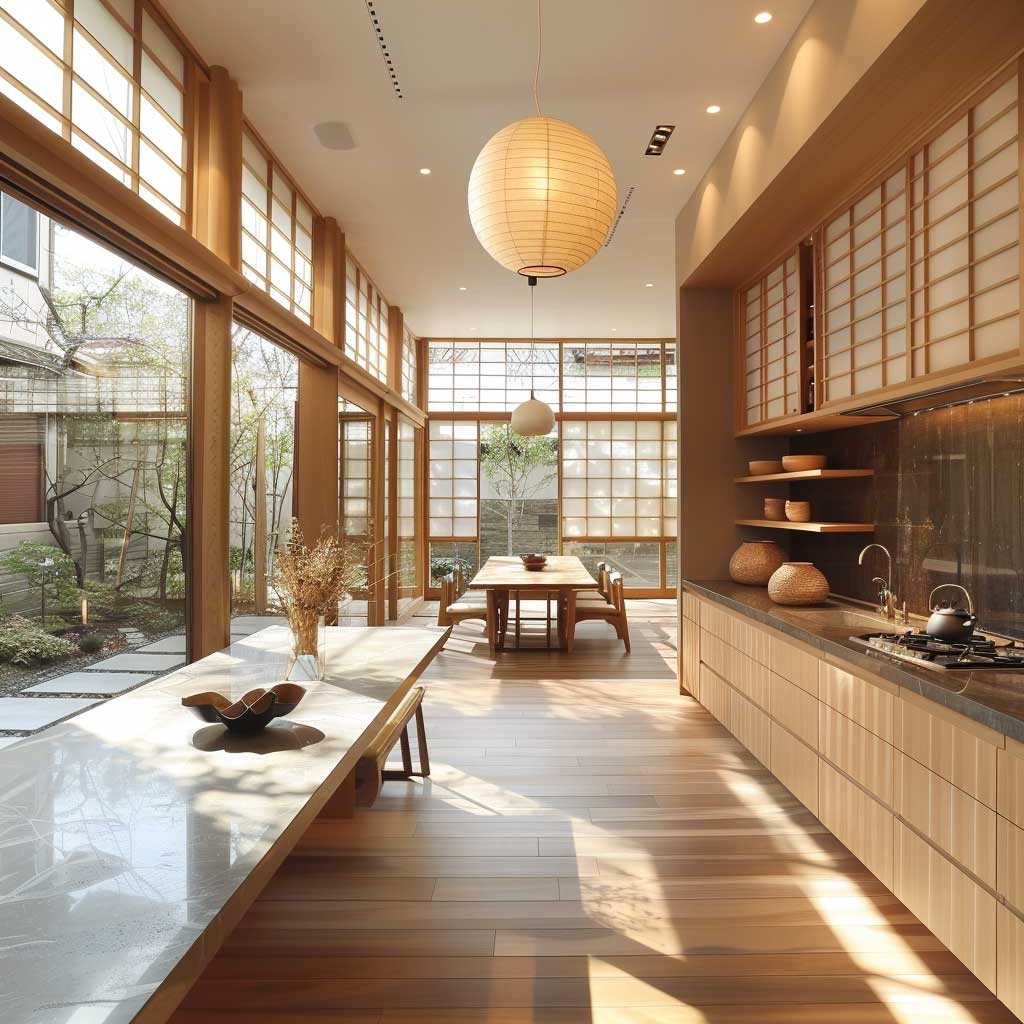
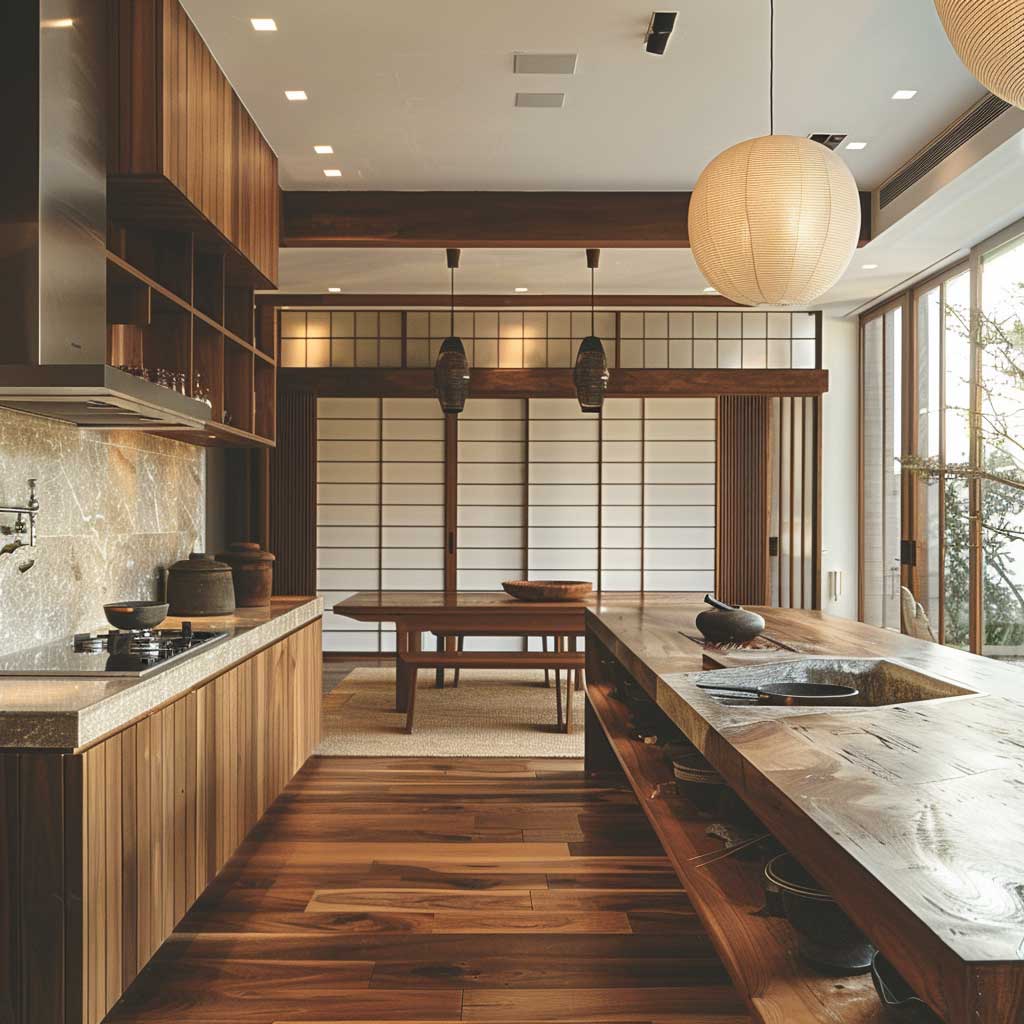
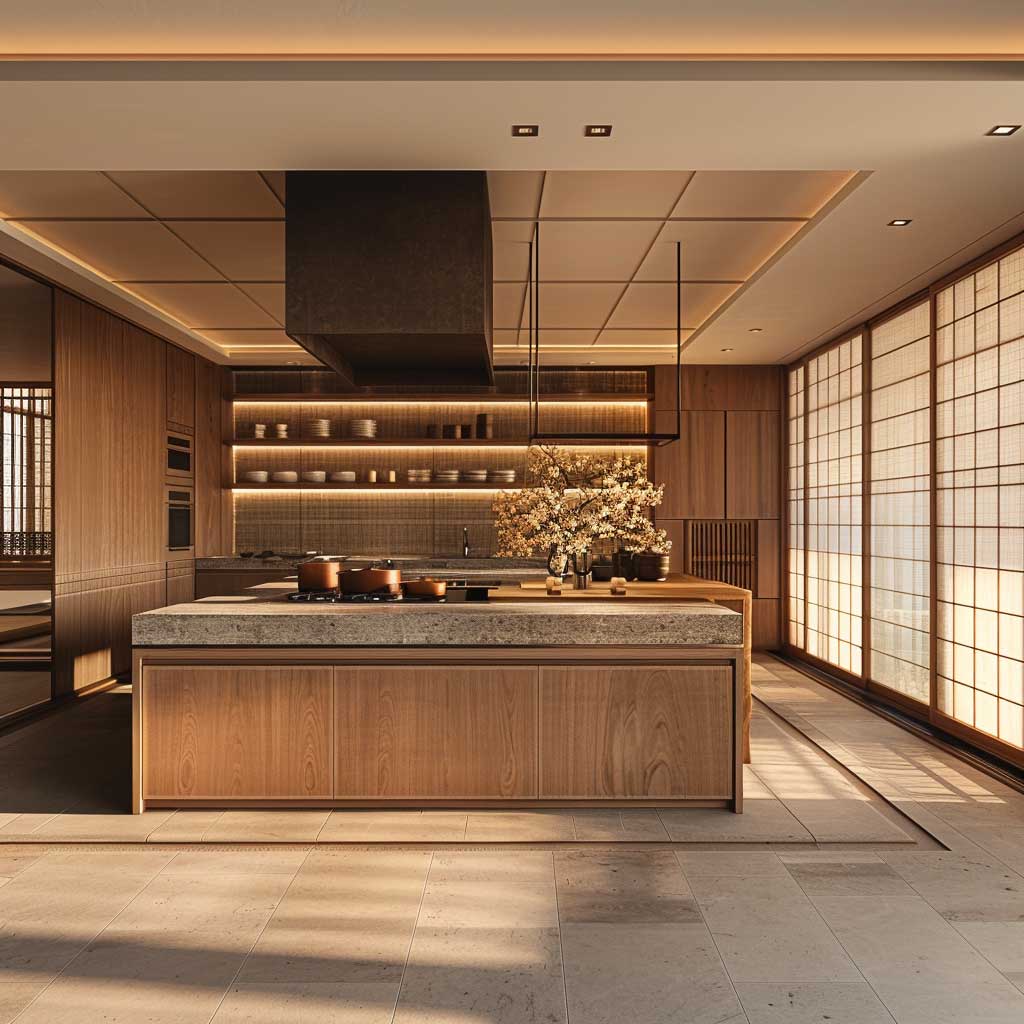
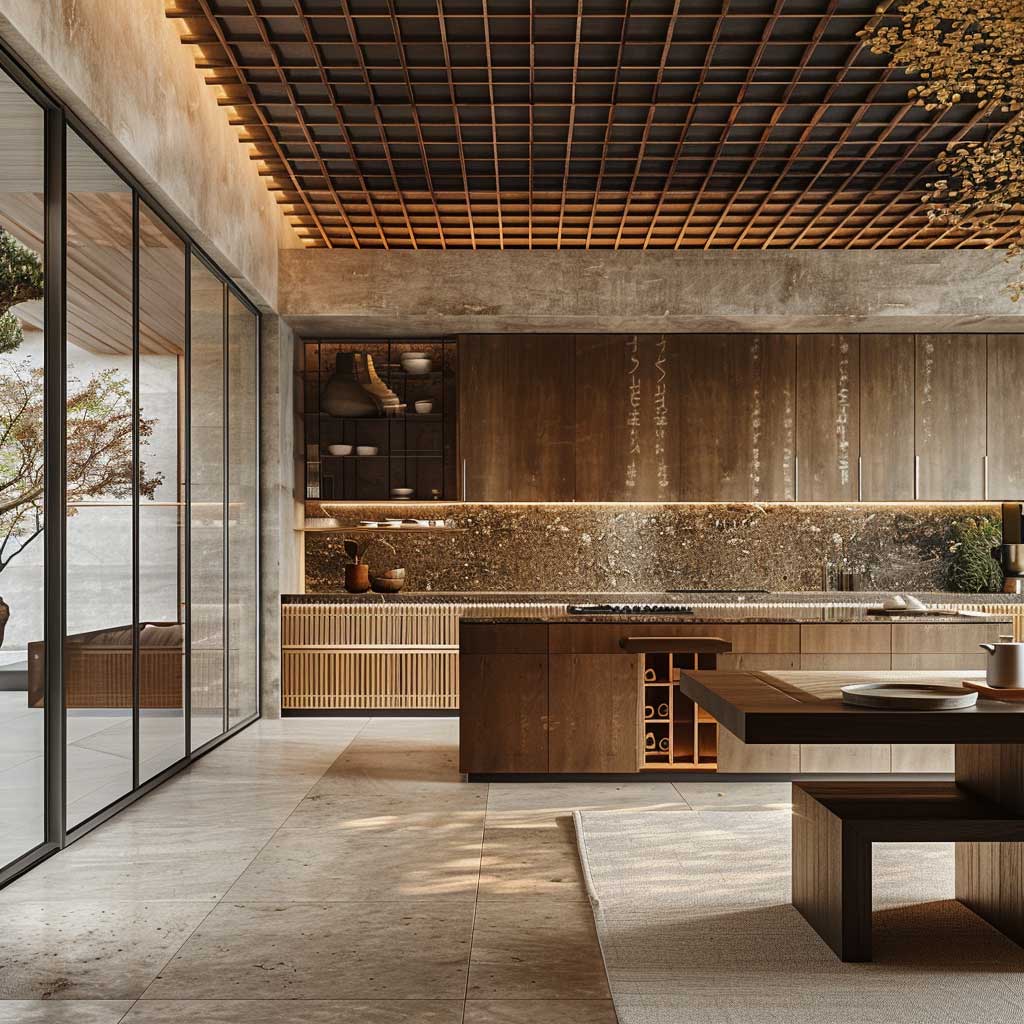
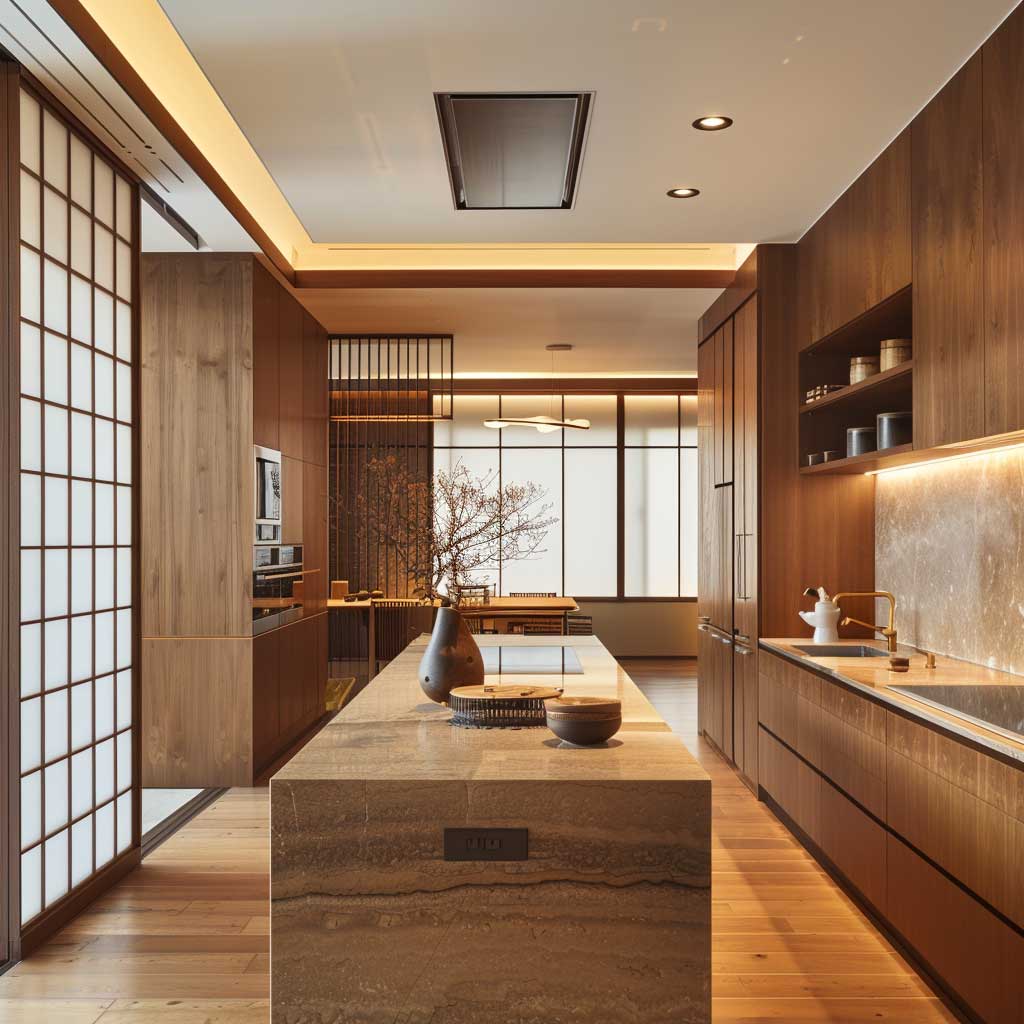
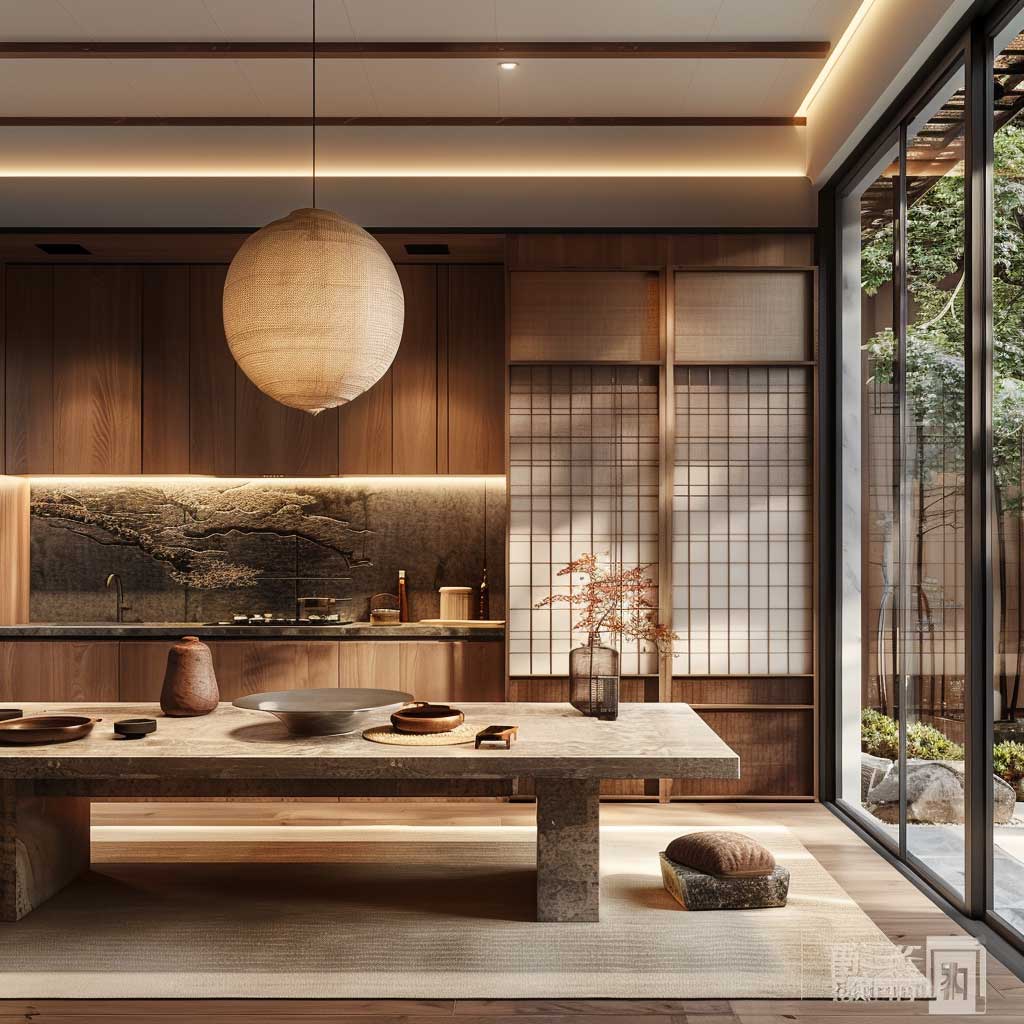
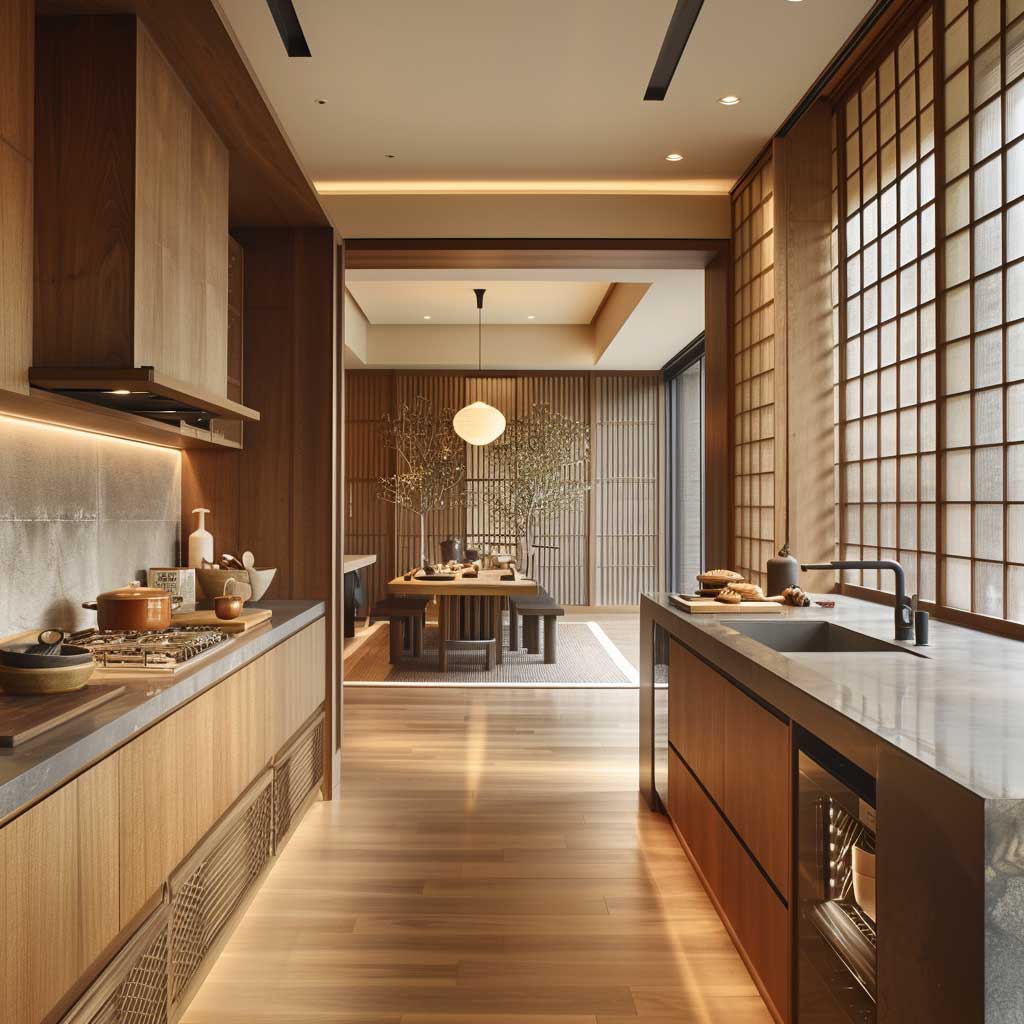
The intersection of tradition and contemporary design gives rise to some of the best kitchen designs, where the depth of history meets the clarity of modern minimalism. Such kitchens are not just spaces for culinary endeavors but are also profound expressions of cultural heritage blended with the simplicity and mindfulness of modern design principles.
In these kitchens, traditional elements like tatami mat flooring and shoji screen doors are not mere aesthetic choices but are deeply imbued with cultural significance, bringing a sense of peace and connection to the natural world. These traditional features are complemented by modern amenities and designs, such as dark wood cabinetry that offers sleek storage solutions and natural stone countertops that merge durability with beauty.
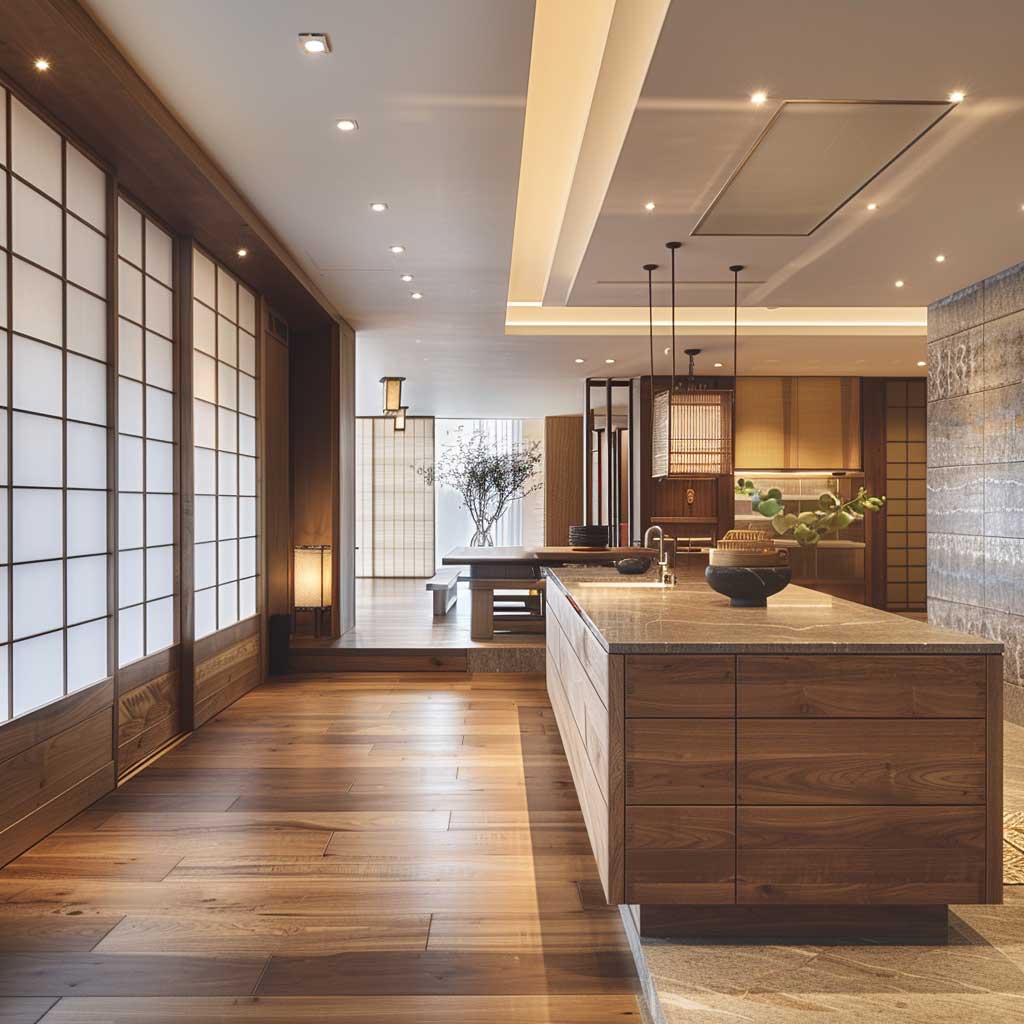
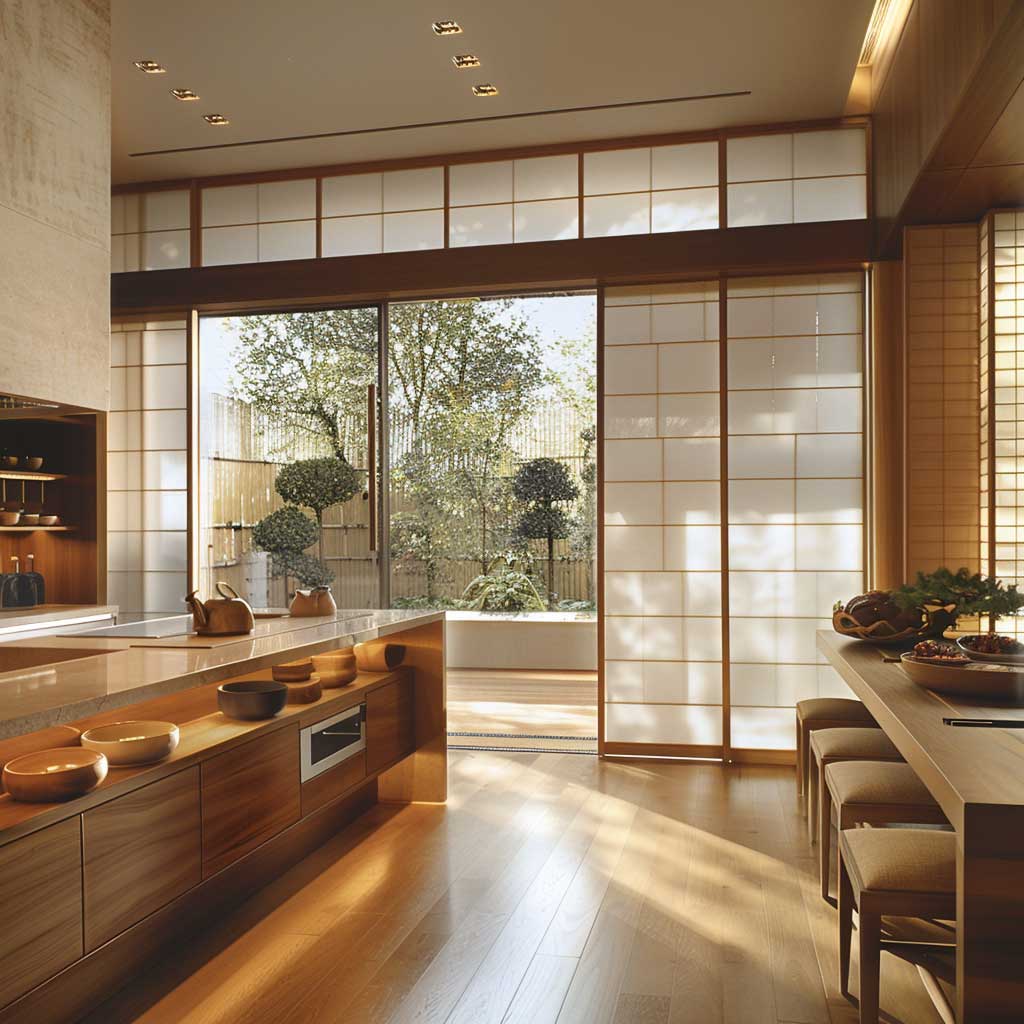
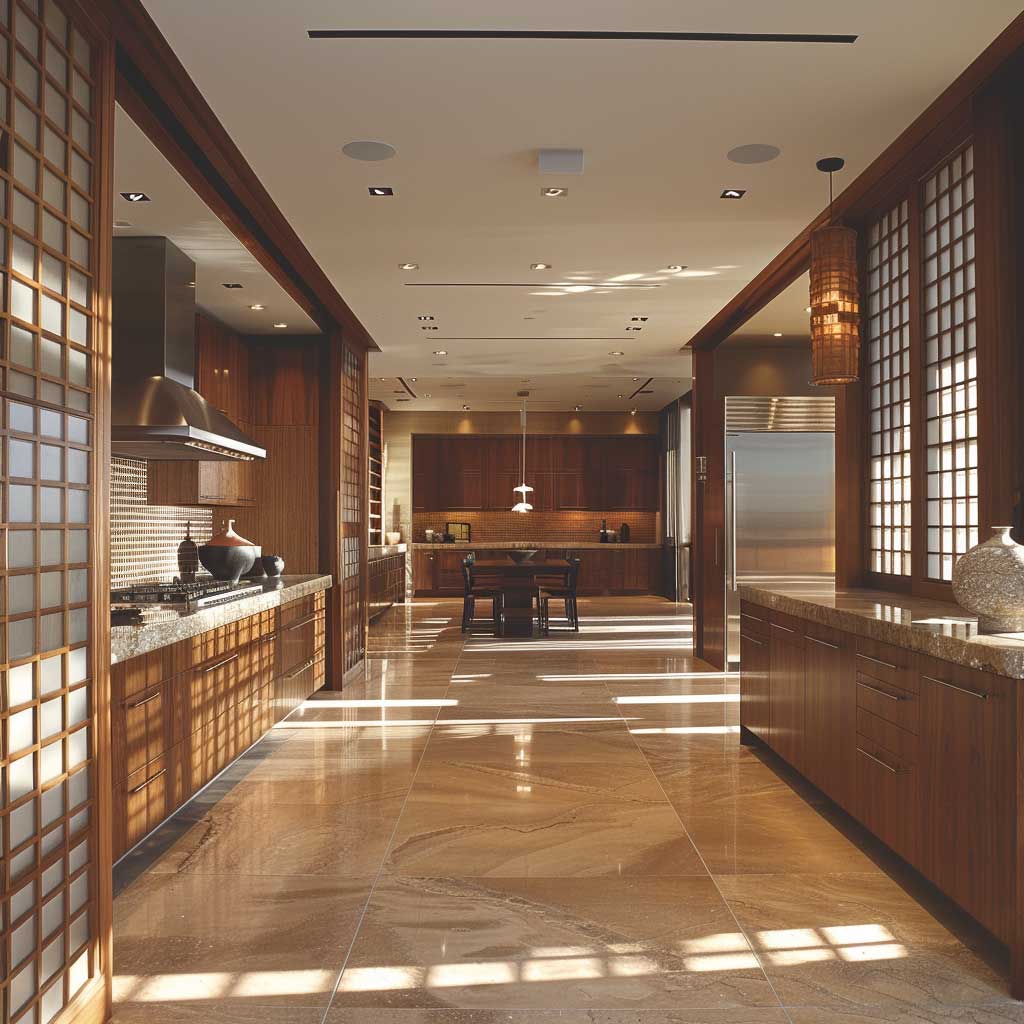
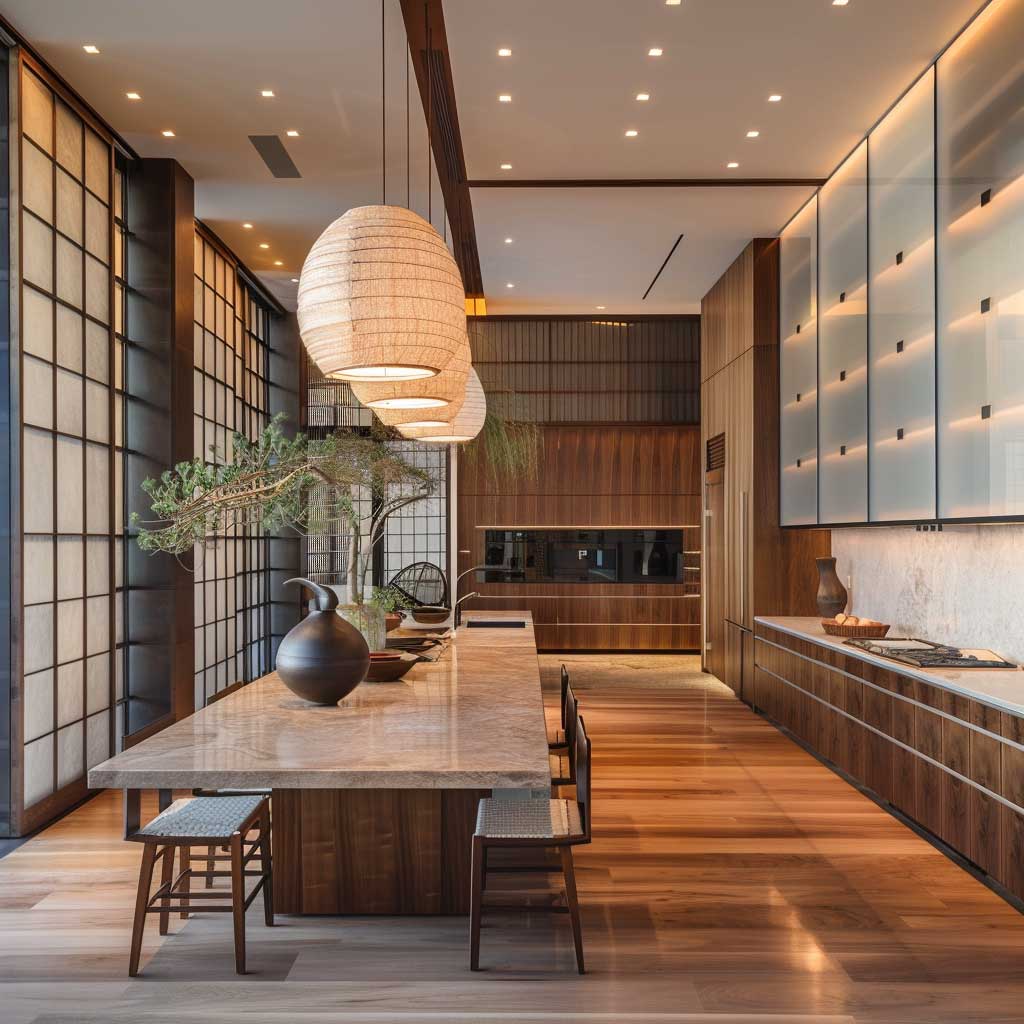
The heart of the kitchen lies in its open-plan design, which accommodates a minimalist dining area. This space is not only functional but also symbolic, fostering communal dining experiences that are a cornerstone of traditional Japanese culture. The incorporation of a modern, sculptural light fixture above this dining area serves as a nod to contemporary design, adding a touch of elegance and highlighting the blend of old and new.
This harmonious fusion of traditional and contemporary elements creates a kitchen that is rich in history yet unmistakably modern. It is a testament to the idea that the best kitchen designs are those that honor the past while embracing the present, offering spaces that are both meaningful and minimalist.
In summary, the best kitchen designs inspired by Japanese minimalism serve as a testament to the timeless appeal of simplicity, functionality, and natural beauty. These spaces are not just about cooking; they are about creating a serene environment that nurtures well-being and mindfulness. By embracing the principles of Japanese minimalist design, homeowners can create kitchens that are both aesthetically pleasing and profoundly peaceful, proving that less can indeed be more in the art of interior design.

